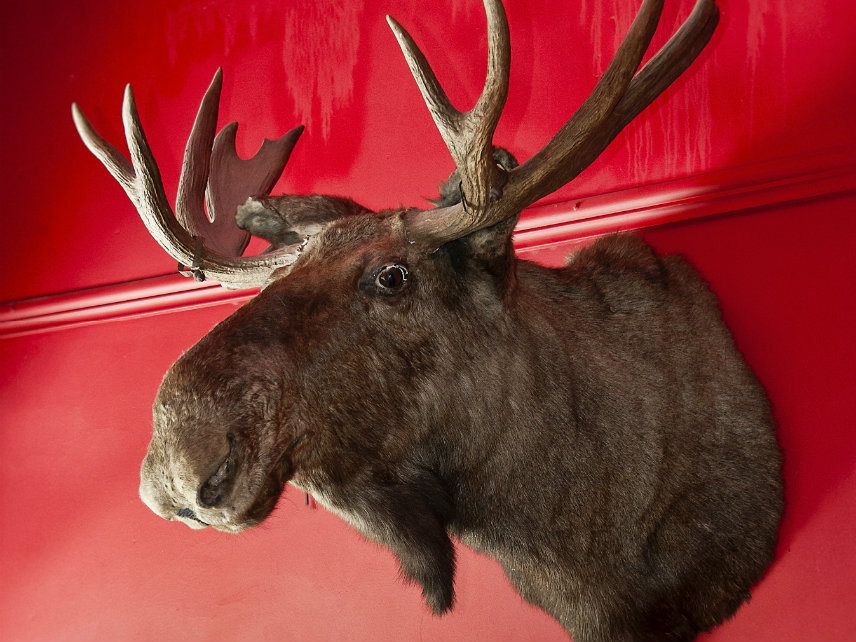Hovercraft-Driving Moose Hunter Is Big Winner at SCOTUS Today
John Sturgeon can once again "rev up his hovercraft" to hunt moose on Alaska's rivers, the Supreme Court ruled unanimously.

Nearly 12 years after National Park Service officers told John Stergeon he wasn't allowed to hunt moose from a hovercraft floating on an Alaskan river, the Supreme Court has affirmed Stergeon's right to do exactly that.
"Sturgeon can again rev up his hovercraft in search of moose," Justice Elena Kagan wrote in the unanimous opinion released today.
And while the stakes in Stergeon v. Frost might seem rather trival—well, unless you're an Alaskan moose—the Supreme Court's unanimous ruling is an important victory for federalism that sets a limit on federal power to regulate waterways and the activities that take place upon them.
The case began all the way back in 2007, when Sturgeon was stopped by National Park Service rangers as he was traveling along the Nation River within the Yukon-Charley Rivers National Preserve. He was heading towards a moose hunting ground outside the preserve, but was told by the rangers that he was not allowed to travel via hovercraft on waterways within national park lands.
At the crux of Sturgeon's lawsuit, effectively, was the argument that rivers are not land—and that the National Park Service's regulatory authority over land therefore does not extend to rivers and other waterways. Complicating matters was a 1980 law called the Alaska National Interest Lands Conservation Act (ANILCA), which gave the federal government authority over large swaths of public land in Alaska.
But that law did not clearly indicate that federal authority over public lands included waterways, which Sturgeon's lawyers argued was a federal loophole meant to keep Alaskan rivers and waterways under state control. Since a large amount of transportation and commerce depends on rivers in Alaska—and since so many of those rivers lie within federal lands (the federal government owns 61 percent of the state)—allowing the Park Service to regulate rivers would be an effective federal takeover of transportation in much of the state.
There were two questions the Supreme Court had to answer, Kagan wrote in the unanimous opinion. First, does the Nation River qualify as public land for the purposes of ANILCA? Second, does the Park Service have authority to regulate Sturgeon's activities on the river within the Yukon-Charley reserve?
"Today, we take up those questions, and answer both 'no,'" wrote Kagan.


Show Comments (30)